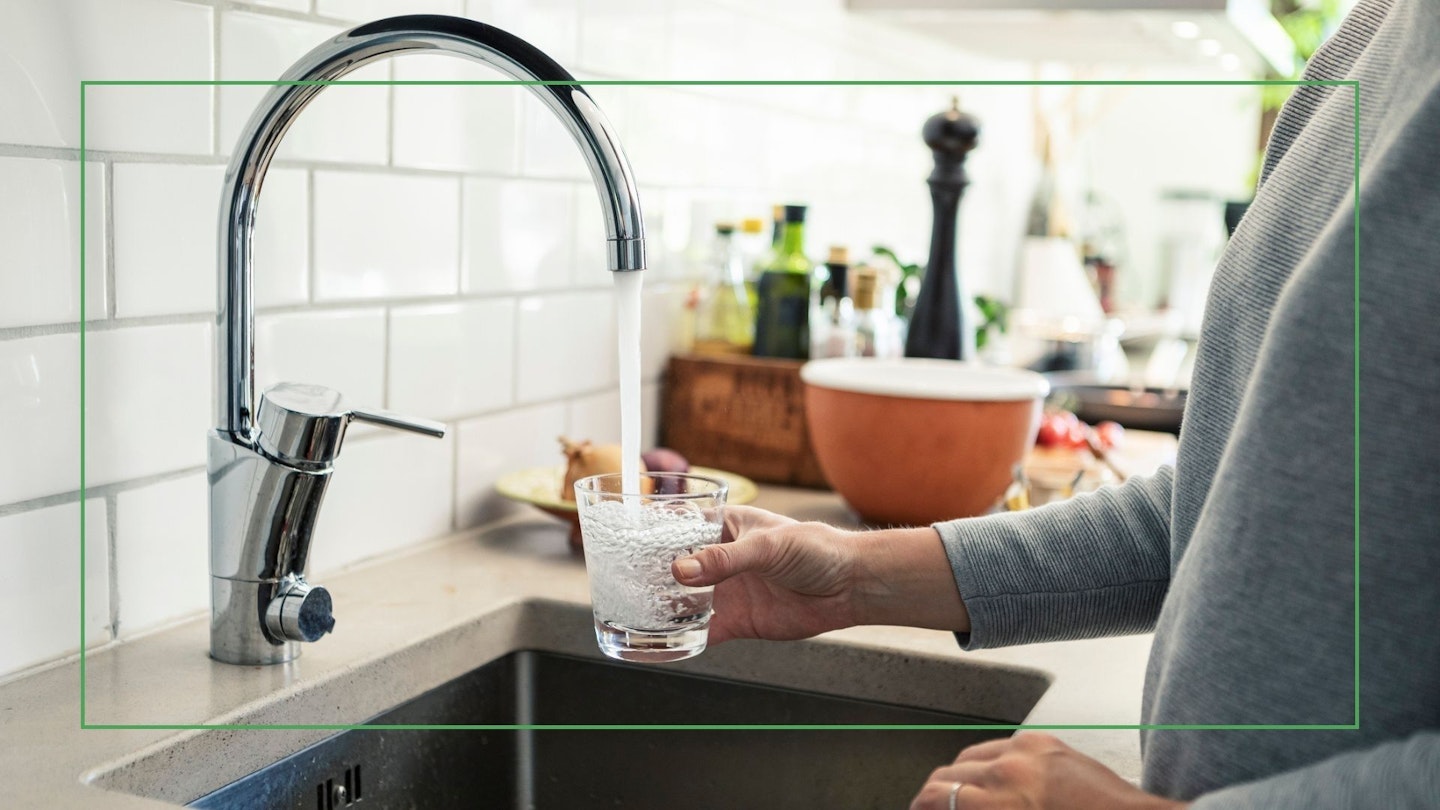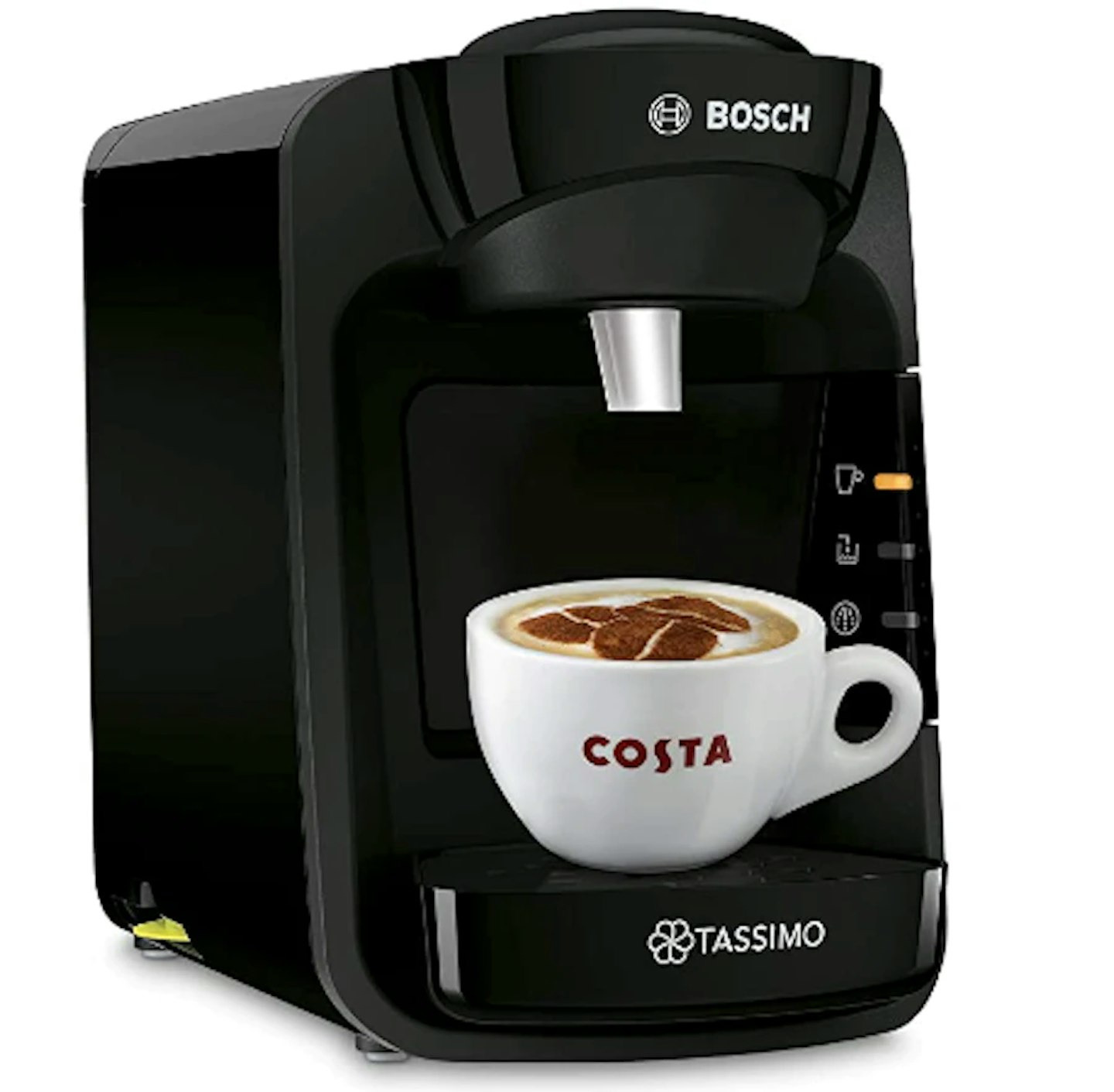You may have heard water be referred to as either hard or soft. But, what is the difference? We’re here to debunk some myths about water and demystify any questions you have about the difference. This guide to hard and soft water will clear up whether you're in a hard water or soft water area and how you can improve your water flow with clever tips and tricks.
What is hard water?
The hardness of water is determined by the amount of calcium and magnesium it contains. Higher levels of these and other minerals make water hard. Essentially, hard water is just water – but it is full of extra minerals. Though this sounds lovely in theory, hard water actually has a few downsides.
What is soft water?
If water is soft, it has fewer calcium and magnesium molecules. In fact, instead of having higher levels of calcium and magnesium, soft water tends to have higher concentrations of sodium - or salt.
What are the benefits of soft water?
Hard water may be great for your mineral intake, but it's tough on your skin, hair and appliances. On the other hand, soft water is better for cleaning. This is because it doesn’t tend to cause soap scum or mineral stains - which is something we don't want. With softer water, you could - essentially - save on your bills by not having to rewash clothes or leaving the shower on for a longer rinse.
How can I soften my water?
You can install a water softening system in your home. Essentially, the water runs through resin that has been modified to attract those unwanted calcium and magnesium molecules. So, when the water passes through the filter, the water leaves magnesium and calcium behind. Also, during this process, these molecules are swapped with sodium molecules. Hence, the water is softened. Water softening systems require ongoing replenishment, though, with sodium pellets.
However, higher sodium levels may not be healthy for many people - especially those with high blood pressure. So, if you have a low-sodium diet, talk with your cardiologist and a water softener company. You could even test the water yourself. If a salt-based water softening system is not viable, you can opt for one that uses potassium instead.
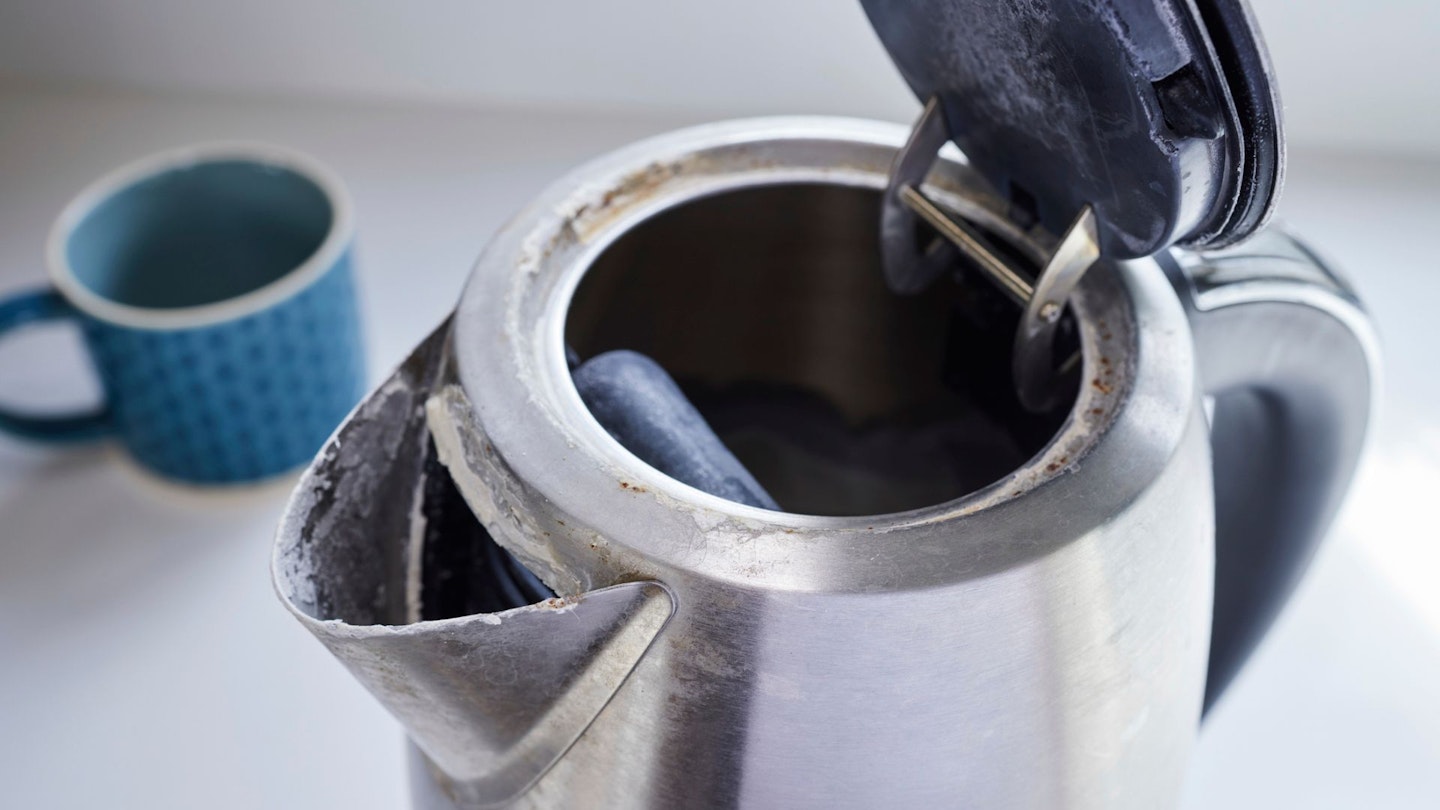
Is hard water bad for me?
First things first: there are no serious health problems caused by drinking hard water. In fact, hard water contains a higher level of magnesium and calcium, so drinking hard water may help you with getting essential minerals.
However, that being said, hard water is not all helpful. It can cause minor problems due to its alkaline nature, which can affect the pH balance of the body.
Firstly, it can cause issues with your hair, causing it to dry out and your scalp to feel itchy. Next, your skin can become affected by hard water. Like hair, skin can dry out, its pH can alter, and it can become weak in its role as a barrier from infections and harmful bacteria.
As a result, people with skin conditions – like eczema – will be affected the most.
How can I tell if I live in a hard water area?
Though you can’t tell by appearance, there are some signs that you live in a hard water area:
Stains – show up on clothes when they come out of the washing machine. Plus, clothes may not last as long in the harshness of hard water.
Lower water pressure – can be caused by hard water. This is because mineral deposits can form in piping and shrink the interior. Therefore, this can reduce water flow.
A film on your hands – can occur after washing them due to the soap reacting with the minerals. When you live in a hard water area, you may need to rinse your hands for longer.
Spots can show up on glassware and cutlery coming out of the dishwasher – of calcium origins.
Alternatively, you can find out how hard your water is with this resource from Aqua Cure.
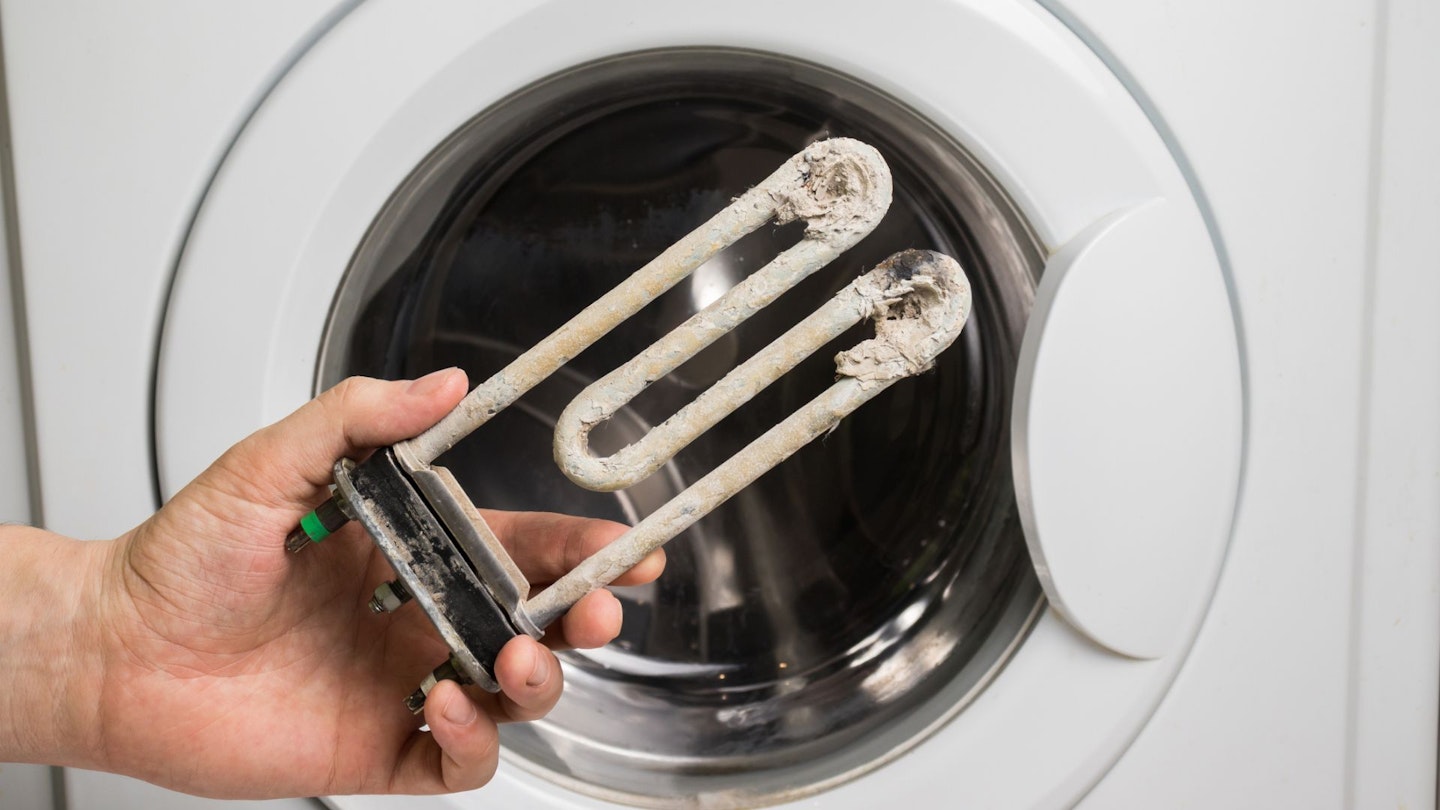
What effect does hard water have on my kitchen appliances?
According to manufacturers, dishwashers, washing machines, kettles and coffee machines alike require softer water to achieve good cleaning results and to keep the machines running smoothly.
Dishwashers
If you live in an area of hard water, dishwasher salt is essential to keep your dishwasher running. The salt compartment of your dishwasher is normally at the bottom of the machine, near the filter. Make sure to keep it full. Most dishwasher appliances, such as these clever Bosch dishwashers, will let you know if there’s a shortage.
Best overall dishwater
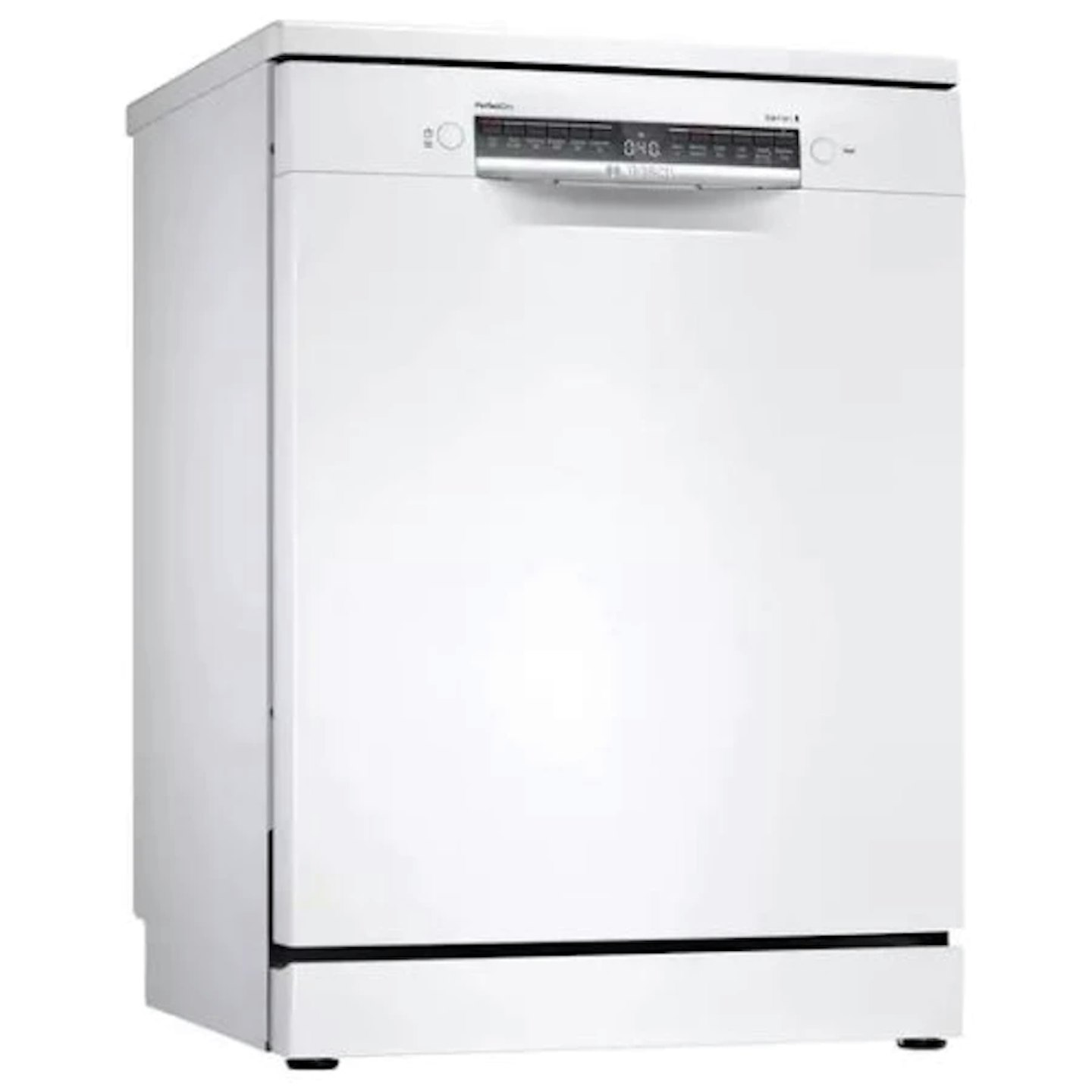
www.currys.co.uk
The Bosch Series 6 SMS6ZCW00G Full-Size Dishwasher is an outstanding appliance, with six programmes, inclduing eco, intensive and silence. The dishwasher features Flex Baskets, PerfectDry and DossageAssist for an energy efficient wash and superb results.
Pros
- Quiet running
- Adjustable smart cutlery drawer
- Cleans and dries well
- Ability to control from anywhere
Cons
- Instructions are a little complicated
| Dimensions: | H84.5 x W60 x D60cm |
| Energy Rating: | C |
| Compatibility: | Freestanding |
| Programmes: | Six |
| Guarantee: | Two years |
This is our recommendation for the best dishwasher salt:
Recommended
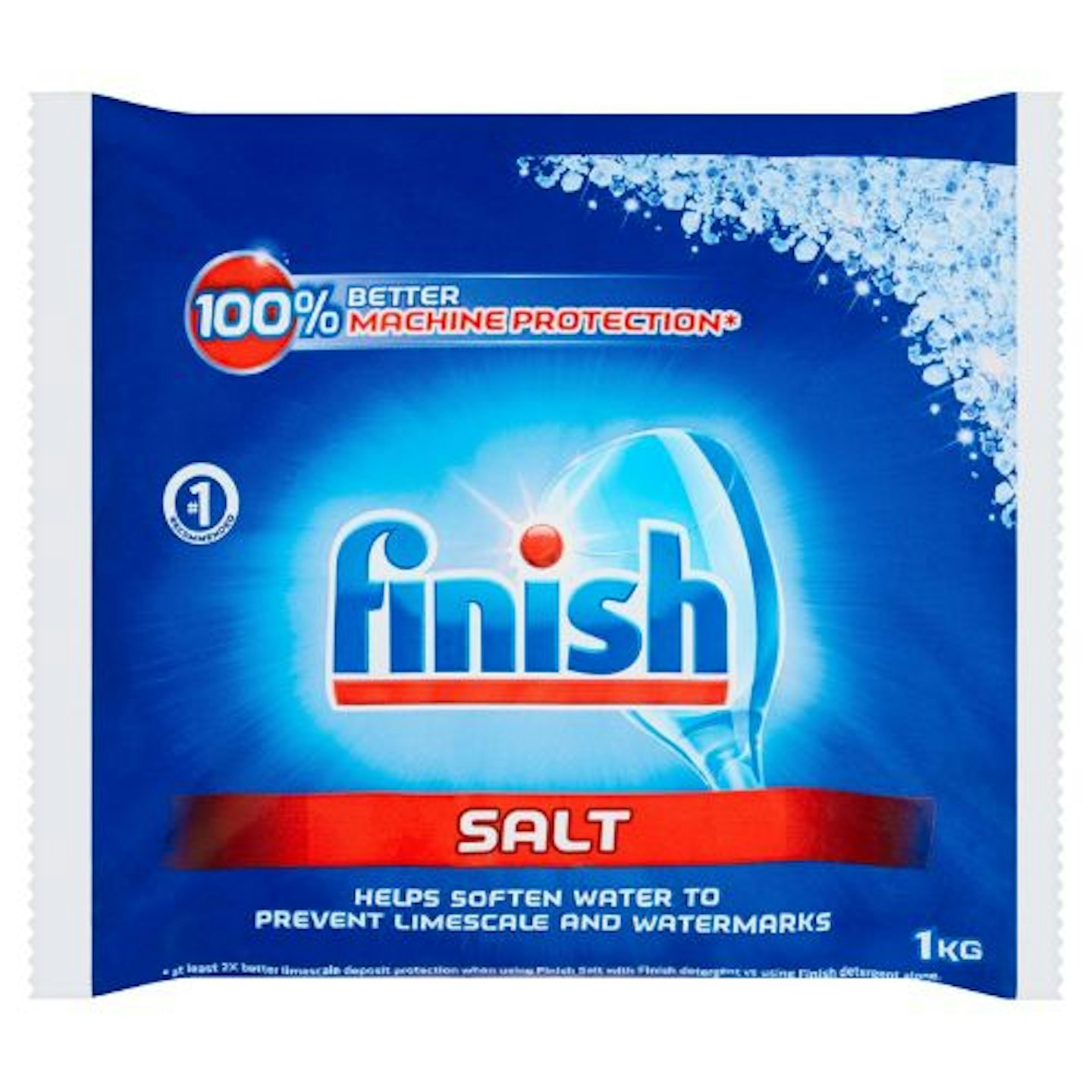
Though some All-in-One dishwasher tablets will contain salt for cleaning, it is recommended to top up the dishwasher for the best results, especially in hard water areas. Also, Rinse-Aid is recommended for use in dishwashers as it prevents water spots and helps faster drying. This is our recommendation for the best dishwasher rinse-aid:
Top pick
Washing Machines
As for washing machines, hard water can leave stains on clothes, sheets, and towels and make them look dingy and feel rough to the skin. Additionally, hard water might leave a powdery residue on your washed clothes. Not only that, but hard water can be harsh on your trusty washer.
To be specific, when in the presence of hard water, detergents and laundry powder can become attached to the minerals in the water as opposed to actually cleaning your fabrics. So, in theory, for better results, you could use 30 per cent more detergent than recommended and at a higher temperature. Though these results are effective, they’re not cost-effective or a long-term solution.
Samsung Series 5 ecobubble WW90TA046AX 9kg Washing Machine
Best washing machine for hard water
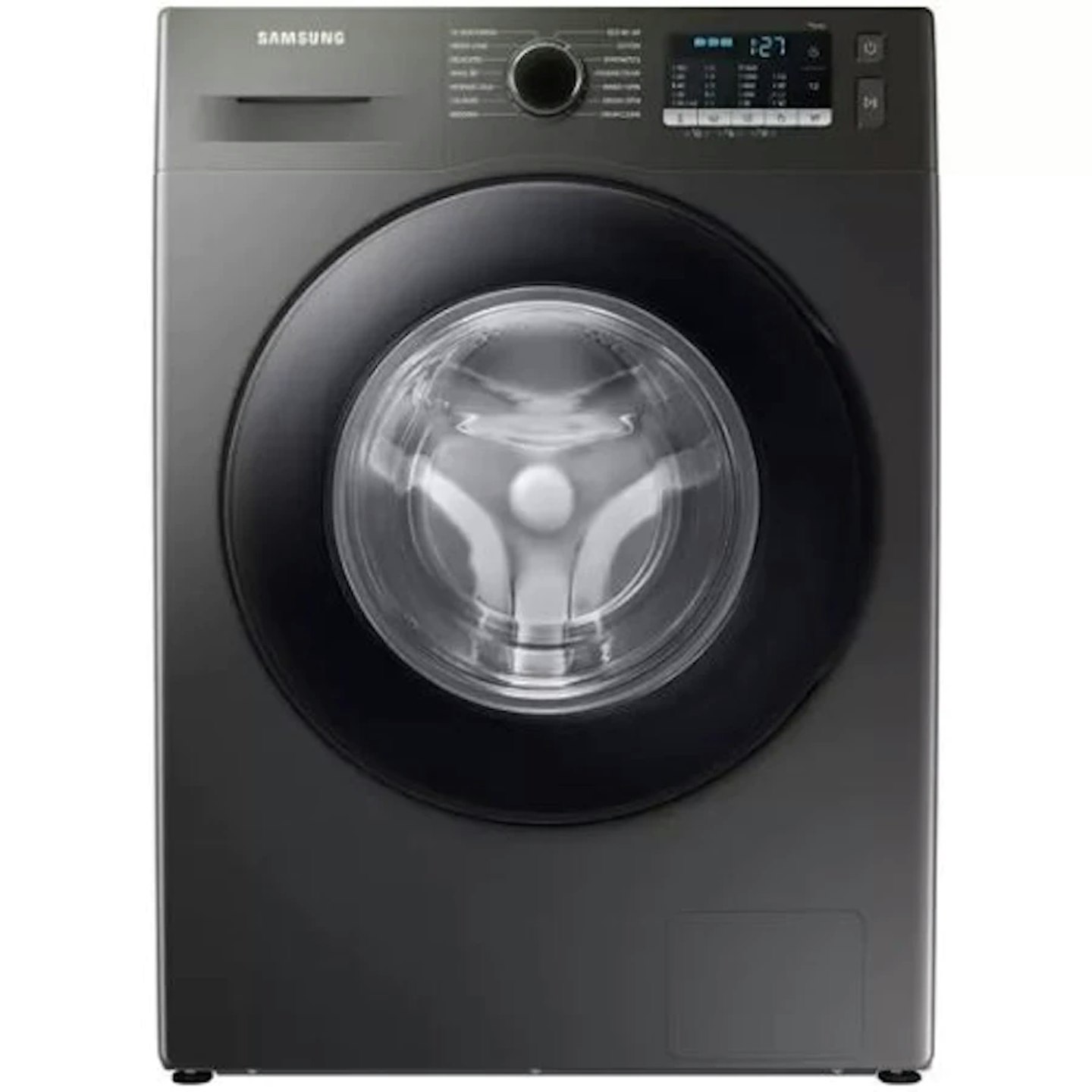
The Samsung Series 5 ecobubble WW90TA046AX 9kg Washing Machine features in our list of the best washing machines. In a hard water area, the Drum Clean cycle and StayClean drawer features will help keep this appliance sparkling clean, with water and detergent flowing freely.
Pros
- Quiet
- User-friendly with easy to use control panel
- Song to mark the end of the programme
- Energy-efficient
Cons
- Long eco cycle - over two hours
| Dimensions: | H85 x W60 x D55cm |
| Drum capacity: | 9kg |
| Spin speed: | 1400rpm |
| Energy rating: | A |
| Programmes: | 14 |
| Warranty: | 5 years (second year onwards by registration) and 10 years on the motor |
If you are unable to install a water softener, our recommendation comes with heavy-duty detergent, rather than budget cleaners. Why? Well, the science is that top brands typically contain non-ionic surfactants that are resistant to water hardness. Though more costly than a supermarket brand, a heavy-duty detergent ensures that you’ll be paying less money on replacing your clothes. We like this one from Dettol:
Great choice
Coffee Machines
When looking for a coffee machine, find an appliance that is suitable for your area. In the UK, most of us live in a hard water area and have had to deal with limescale across our homes. From our kettles to our coffee cups, we have to make sure we’re using products like descalers.
So, before purchasing, make sure to check reviews for different machines and invest in a water filter and limescale removers. Luckily, some brands provide descaling tablets or tools. If you have a coffee machine already, make sure to check the instructions manual or scour online to find the company’s recommendations.
Best coffee machine for hard water
The Tassimo by Bosch, Suny 'Special Edition' automatically cleans between each coffee. In addition, descaling the coffee machine couldn't be easier, using the Tassimo descaling tablets. This compact coffee pod machine features in our round-up of best coffee machines. At less than £50, it's a fantastic investment if you love a wide range of coffee and milky hot drinks.
Pros
- Wide variety of flavour pods
- Cheap
- No buttons
Cons
- Small water tank
| Dimensions: | H25.1 x W16.7 x D30.5cm |
| Capacity: | 0.8L |
| Compatibility: | Tassimo T Discs - more than 40 hot drinks from famous brands including Costa, Cadburys and Twinings |
Tassimo markets these descaling tablets. They could possibly be used for kettles and other non-Tassimo coffee machines. But, we recommend checking with the manufacturer's recommendations first.
Recommended
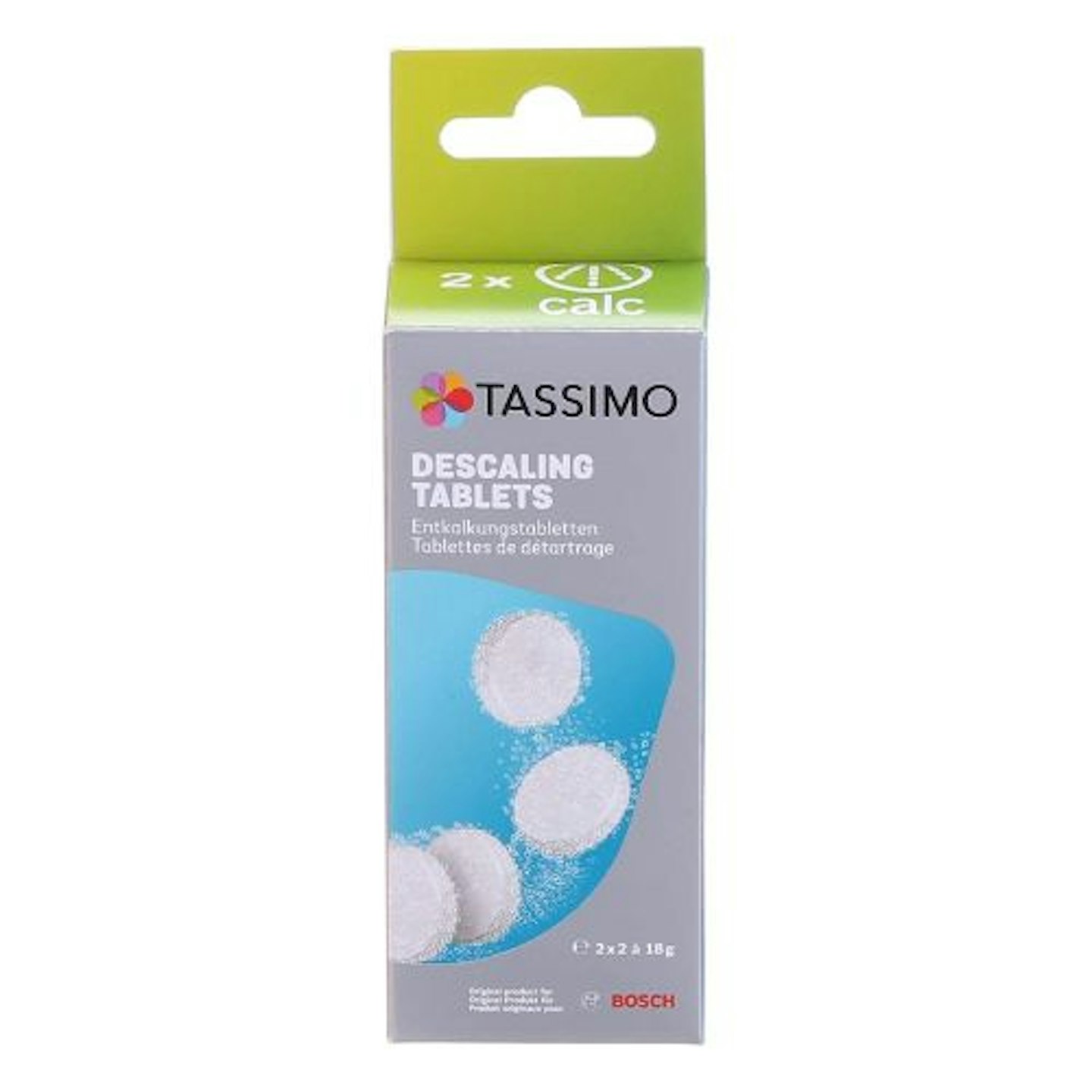
Kettles
Nothing takes the biscuit more than flakes slipping into your tea or coffee, turning that beloved brew into something undrinkable. Limescale can build up in your kettle in areas of hard water and it’s not great for your trusty appliance. So, you need to be either descaling your kettle regularly or investing in an electric kettle with filtration technology. The latter is the most cost-effective option. You should be taking steps to ensure you’re not dunking your rich teas into a mug full of minerals.
This model from Russell Hobbs has an anti-scaling filter that works well with hard water:
Best kettle for hard water areas

www.sainsburys.co.uk
This Russell Hobbs 22851 Brita Filter Purity Electric Kettle with BRITA Filtration built-in is one of the best kettles for hard water areas and will ensure you get the best-tasting brew with zero limescale. The filter cartridge reduces limescale, metals, and chlorine, filtering your water slowly to remove impurities.
Pros
- Filters and boils simultaneously
- Quiet
- Delivers great-tasting water
- Attractive blue light to indicate when boiling
Cons
- Can take a while to filter water through
| Water capacity: | 1.5L |
| Power: | 3000W |
Piper Huxley is a Homes, Gardens and Wellness Product Writer for A Modern Kitchen, specialising in cookware. When she’s not cooking up a storm in the kitchen, Piper is re-watching a TV show or listening to a podcast.
